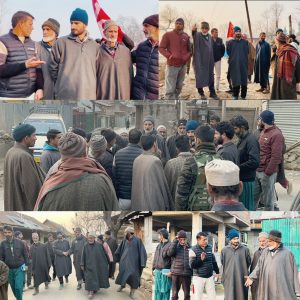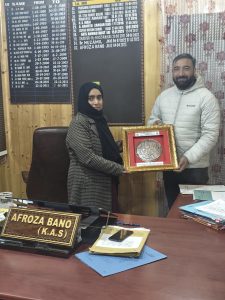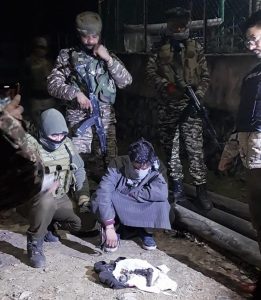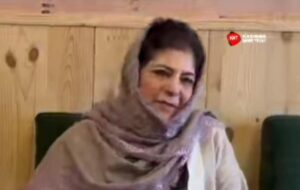Big Update Regarding Article 370 hearing

Article 370 hearing begins in SC
Parliament can’t Declare Itself as Constituent Assembly: Kapil Sibal to SC
Jahangir Sofi
Srinagar, Aug 02 (KNO): The Supreme Court on Wednesday began hearing petitions challenging scrapping of Article 370 and reorganisation of the erstwhile state of Jammu & Kashmir into two Union Territories.
As the Supreme Court’s five-judge Constitution Bench comprising Chief Justice of India (CJI) DY Chandrachud and Justices Sanjay Kishan Kaul, Sanjiv Khanna, BR Gavai, and Surya Kant began hearing petitions challenging the scrapping of Article 370 from Wednesday, senior advocate Kapil Sibal began the hearing with his arguments.
The main highlights of Wednesday’s proceedings, as per the news agency—Kashmir News Observer (KNO), was that Kapil Sibal said that the Parliament cannot convert itself into a Constituent Assembly.
“And if you accept that proposition, it has enormous consequences for the future of my country,” he further said.
Stating that the argument that Article 370 was temporary is wrong, Sibal said, “When we became a Republic, Article 370 was there and the Constituent Assembly only came into existence in 1951.”
He said that Jammu and Kashmir is a unit of the Indian Union and this is not disputed at all.
Stating that the people of Jammu and Kashmir cannot be left aside, Sibal told the Court that the aspirations and desires of people, whatever they may be, have to be respected.
“This is only on the basis that 370 becomes permanent after the constituent assembly ceases to exist, but if the hypothesis is not accepted, then the only way is to assert that a pre-independence agreement has to be enforced,” he said.
Stating that the Centre looked at the Article 370 as a political act and not constitutionally, Sibal told the SC that the government of the day was staring at the provisions of Article 370 through a political act, and not a constitutional procedure declaring that 370 is gone.
“Such a political act cannot be determined by the parliament of India. It’s not in the remit of the parliament to take a political decision to abrogate 370,” he said.
Sibal said that Parliament exercised the will of the people of Jammu and Kashmir when they abrogated Article 370.
“They took upon themselves the constitutional responsibility of saying that we’re now the legislature, we’re the constituent assembly, and we’ll exercise the will of the people of Jammu and Kashmir,” he argued.
“Is that possible constitutionally? Is that envisaged in 370? Is it not an exercise of political power? Can such a power be exercised in the manner in which it was exercised? That’s a matter of procedure”, he said in the SC.
During the last phase of Wednesday’s proceedings in the Supreme Court on petitions challenging the scrapping of Article 370, Sibal said, “You can change the boundary of a state, you can bifurcate the boundaries of a large state to make smaller states. But never in the history of this country has a state been converted into a Union Territory.”
While Justice Kant in his remark said, “But you can carve out a Union Territory out of a state.”
Sibal added, “So you move away from representative democracy, convert it into a Union Territory under your direct rule, and five years have passed. Every day we hear there will soon be elections. There has to be a constitutional basis for doing this.”
The hearing will resume on Thursday at 10:30 AM—(KNO)









